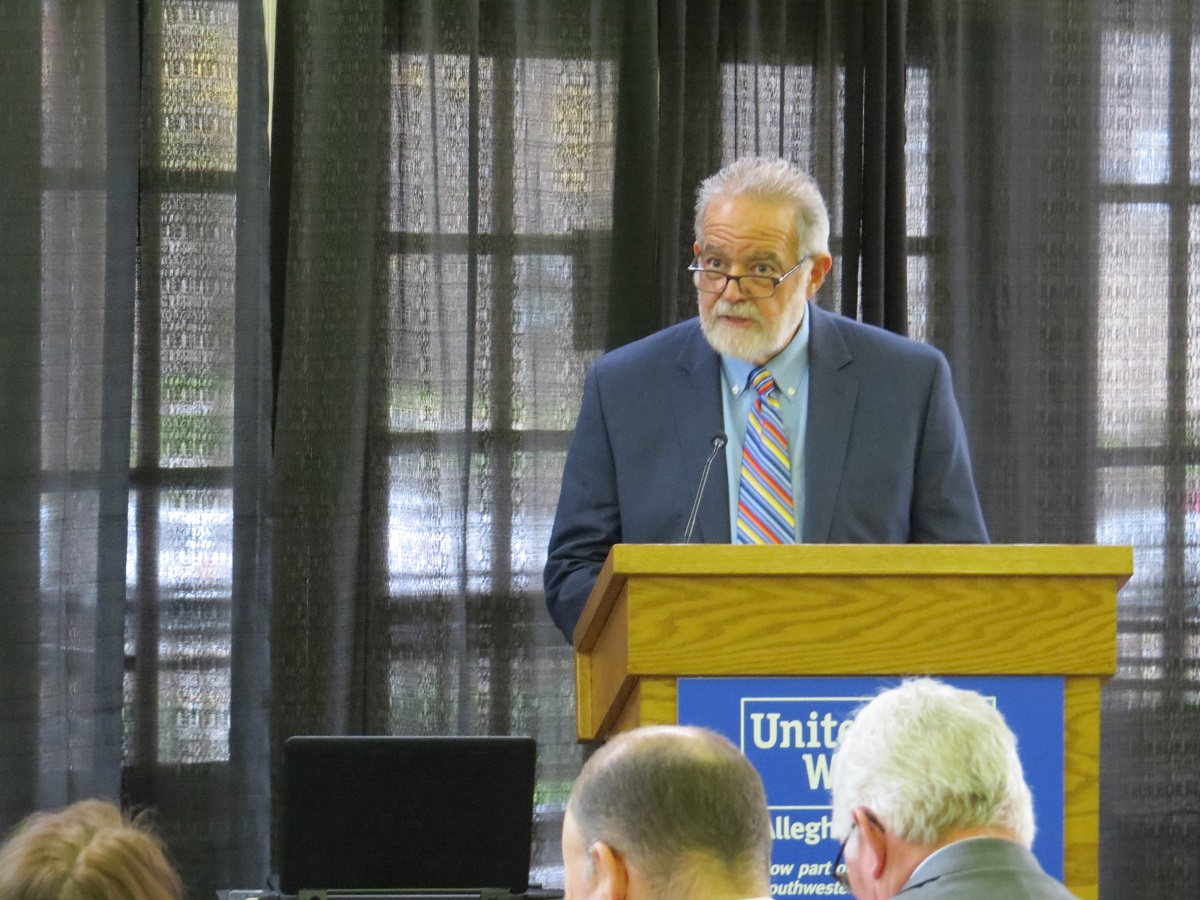
“United for Children” plan expands United Way kids’ programs
The nonprofit United Way is a household name, has more than 6,000 local volunteers and supports more than 75 programs in the Pittsburgh area—but not everyone is clear on what they do.
Bob Nelkin, president and CEO of the United Way of Allegheny County, says the organization is aiming to change that, starting with the release of their strategic five-year plan on December 3.
Called “United for Children,” the plan focuses on expanding the reach of the United Way’s initiatives for children and youth, while calling for an investment of $8 million over the next 3 years. Nelkin calls “United for Children” a “new model” that incorporates all United Way initiatives serving local kids under one plan with specific outcomes.
These initiatives include Be a Middle School Mentor (mentoring for 5,000 children per year), fitUnited (fitness and nutrition education and activities for 75,000 kids), Be There (boosting school attendance for 30,000 students), Hi5! (ensuring on-time Kindergarten enrollment for 50,000 children), and APOST, or Allegheny Partners for Out-of-School Time (quality afterschool programming for 30,000 kids).
The United Way generated its strategic plan with the help of the University of Pittsburgh’s Office of Child Development, as well as a committee of business leaders, youth-oriented agencies, and education leaders.

“What our committee told us was that our work is all moving in the right direction,” Nelkin says. “But they asked us to think about what’s at the heart of our work, and how to explain to people in layman’s turns how you’re going to create better results for kids.”
That’s where United for Children’s 5 pillars come in, he says: Build strong foundations; Promote school success; Establish caring relationships; Deliver quality out-of-school programs; and Envision the future. These pillars offer another way of understanding the United Way’s work, and make it easier to break it down into concrete examples.
Nelkin points to an addition to their afterschool programming that he and his board had just approved that day, as a good example of both pillars four and five.
With the sponsorship of the southwestern Pennsylvania FISA Foundation, which focuses on improving the quality of life of women, girls and those with disabilities, “we’re kicking off a major implementation in coaching boys, based on research from Children’s Hospital here in Pittsburgh,” he says.
In high schools across the greater Pittsburgh region, athletic coaches will spend 15 minutes during sports practices to discuss appropriate interactions and relationships with young women. They would be trained by organizations like Pittsburgh Action Against Rape (PAAR).
“Evidence shows that when it’s introduced this way, from a trusted adult, it improves the behavior of boys toward girls and decreases bystander behavior. It increases the likelihood a boy will speak out when he sees something inappropriate,” Nelkin says.
Patti Camper, Principal of Arsenal Middle School, has some examples of United Way programming at work in her school that she is looking forward to seeing expanded under the United for Kids plan: Be a Middle School Mentor, and Adopt-a-School.
“These programs are successful in helping the students with the greatest need,” she says. “They provide opportunities and access to professionals, supplies and materials our students simply wouldn’t have otherwise.”
Without the Mentor program, Camper says, many students would be limited by “their very small world.”
“They’d never know there’s a whole greater world that is interested in them. Through mentoring, they hear about futures like lawyer, doctor, community worker, worker in city government, work they’d never have a clue existed without mentoring,” she says.
Arsenal has been adopted through the Adopt-a-School program by law firm Buchanan Ingersoll and Rooney, in a program that has built what Camper calls “a bridge between the community and the school.”
“With this program, they’re coming in and working with us, asking, what can we do for you?” she says. The relationship with Buchanan Ingersoll and Rooney started with mentorship, but has expanded to the firm sponsoring activities such as a book drive, a moot court and a reading challenge. Camper adds, “this relationship is a key piece for a more authentic partnership – a mutual investment.”
The Adopt-a-School program is tailored to the business and the needs of the school it adopts. Currently there are four adopted schools; the United Way hopes that will expand to 10 in 2016.
“Research shows that if disadvantaged kids have a caring adult, it helps them over the bumps in their life, gives them guidance and direction,” says Nelkin. “With ‘United for Children,’ we are putting a new emphasis on these adults. They are fundamental to everything we’re doing.”
Find out more about the United Way’s new strategic plan.